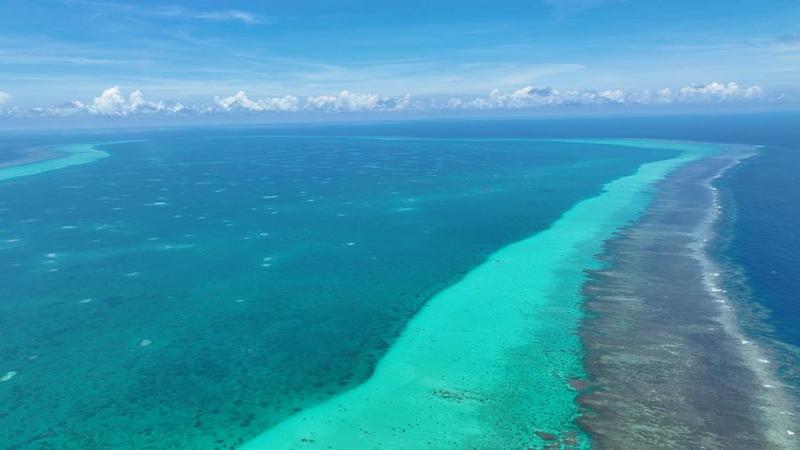
When a Philippine C-208 aircraft illegally entered China's airspace over Huangyan Island on Tuesday, the Philippine government began spreading false narratives, once again showing Manila's determination to worsen the situation in the South China Sea instead of peacefully settling its disputes with China.
In response, the Chinese People's Liberation Army's Southern Theater Command organized naval and air force operations to track, monitor, warn, and expel the aircraft.
Huangyan Island is China's inherent territory and any Philippine attempt to make illegal sovereignty claims is doomed to fail. China consistently maintains that the disputes with the Philippines in the South China Sea should be resolved through consultation and negotiation, but the PLA will always remain on high alert and resolutely safeguard national sovereignty and security and peace and stability in the Asia-Pacific region.
The Philippine government has always tried to legitimize its sovereignty over Huangyan Island and other islands and reefs in the South China Sea through military occupation or domestic legislation.
In November, the Philippines promulgated the so-called Philippine Maritime Zones Act and the Philippine Archipelagic Sea Lanes Act, which illegally included Huangyan Island and most of the maritime features of China's Nansha Islands and relevant waters into its maritime areas. The move, which seriously infringes on China's sovereignty and maritime rights and interests in the South China Sea, not only violates the United Nations Charter and the UN Convention on the Law of the Sea and other international laws, but also attempts to expand its claims of sovereignty in the South China Sea on the basis of illegal and invalid arbitration which China neither accepts nor recognizes.
China's sovereignty over such islands and reefs and its maritime rights and interests in the South China Sea have sufficient historical and legal basis and are in line with international laws including UNCLOS, and will by no means be affected by the Philippines' introduction of domestic laws. A series of international treaties defining the territorial scope of the Philippines have never included China's Huangyan Island or any island and reef of China's Nansha Islands. Manila's domestic legislation or joint naval exercises it holds with other powers to resist China's "aggressive actions" in the South China Sea will not change this historical fact.
China's commitment and efforts to maintain stability in the South China Sea will not change, and its restraint and goodwill should not be rewarded with further provocations by Manila.













